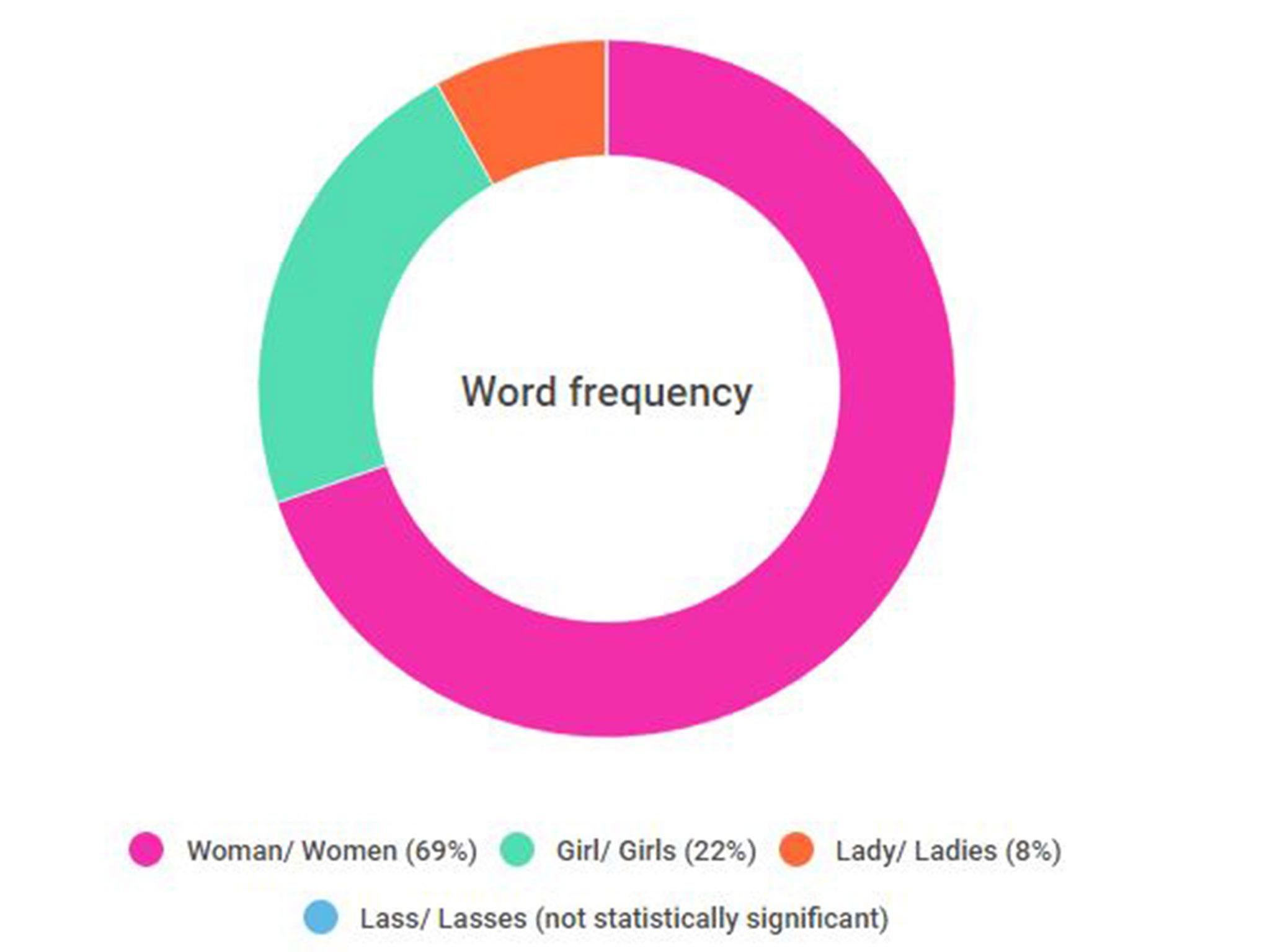Rio 2016: The charts which show how bad sexism is for female athletes
Sports commentators consistently refer to women as 'girls' or 'ladies' much more than they call men 'boys' or 'gentlemen'

Your support helps us to tell the story
From reproductive rights to climate change to Big Tech, The Independent is on the ground when the story is developing. Whether it's investigating the financials of Elon Musk's pro-Trump PAC or producing our latest documentary, 'The A Word', which shines a light on the American women fighting for reproductive rights, we know how important it is to parse out the facts from the messaging.
At such a critical moment in US history, we need reporters on the ground. Your donation allows us to keep sending journalists to speak to both sides of the story.
The Independent is trusted by Americans across the entire political spectrum. And unlike many other quality news outlets, we choose not to lock Americans out of our reporting and analysis with paywalls. We believe quality journalism should be available to everyone, paid for by those who can afford it.
Your support makes all the difference.Accusations of sexism have cropped up repeatedly in this year’s Olympic games, almost as garish and ubiquitous a feature as the medals themselves.
We've seen participants ridiculed for having the audacity to have the muscles required to be world class athletes, criticised for wearing too much clothing in a hijab or not enough in a bikini, as well as spark controversy for mentioning how menstruation affects their performance.
Most recently, an athlete’s boyfriend’s decision to propose to her when she was fresh off the winners' podium sparked think pieces around the world as spectators flocked to ponder whether this was a romantic gesture or a sexist sign of male dominance.
While many have denied female athletes are represented differently from male conterparts in the press and in commentary boxes, new research has shown just how stark sexism in sports commentary really is.
Sarah Grieves is Language Research Project Manager at Cambridge University Press and has analysed how English-speaking sports commentators use language differently in the context of sports. The data isn't drawn purely from the Olympics but considers language use in different contexts, competitions and sporting disciplines. Their final results have yet to be published in full, but preliminary data shared with The Independent indicates a stark difference and suggests similarly subtle prejudices may be at play when it comes to Olympics commentary.
The research found sports commentators are much more likely to use infantalising language when discussing women; using terms like ‘girl’ or ‘girls’ to discuss adult women, much more than the terms ‘boy’ or ‘boys’ to discuss adult men.
Of gendered linguistic markers, women are called ‘girls’ 22 per cent of the time while men are referred to as boys 14 per cent of the time.
This infantalising language may have the effect of minimising female athletes’ successes and undermining their credibility.
Similarly, of gendered linguistic markers, women are referred to as ‘ladies’ 8 per cent of the time, while men are referred to as ‘gentlemen’ just 1 per cent of the time. Such faux gentility may be due to awareness that female athletes are transgressing typical gender behaviour through their strong bodies, and seeks paint them through typically gentile and feminine language to counter this.
Interestingly, men were also described as ‘lads’ 6 per cent of the time, whereas there was no female equivalent concept identified. While some sports commentators spoke of ‘lasses’, this was not on a comparable or statistically significant level.
Join our commenting forum
Join thought-provoking conversations, follow other Independent readers and see their replies
Comments